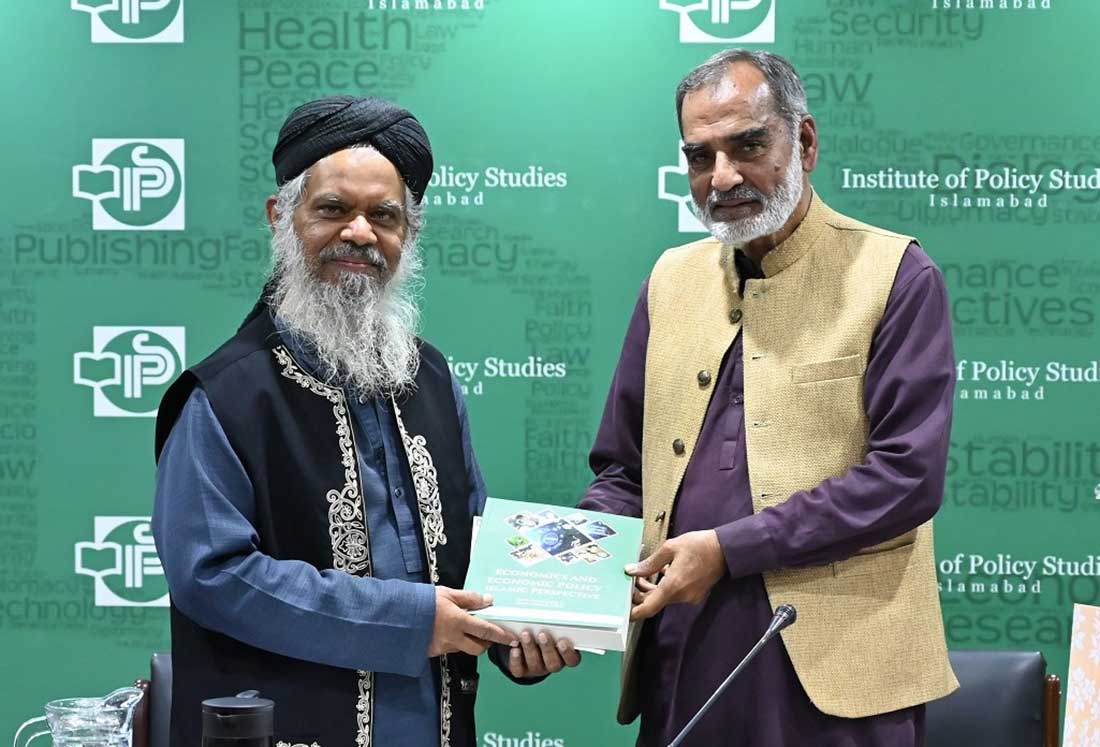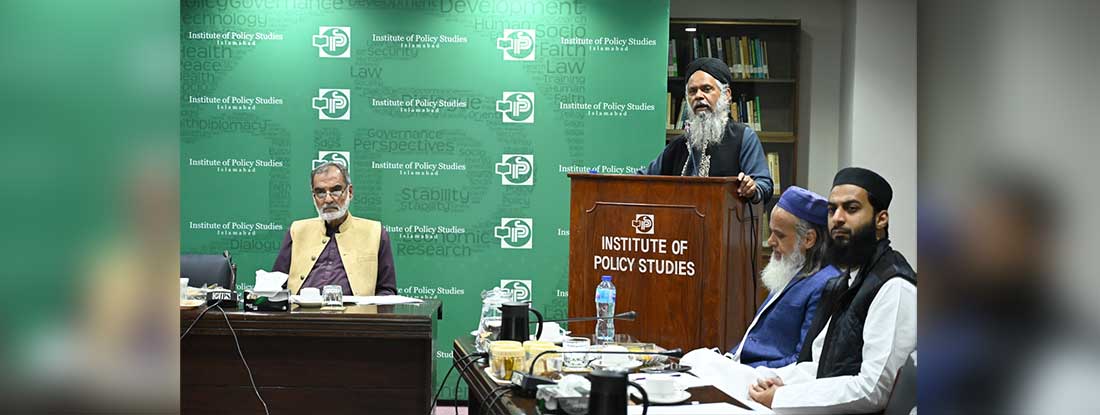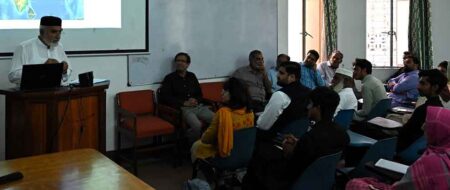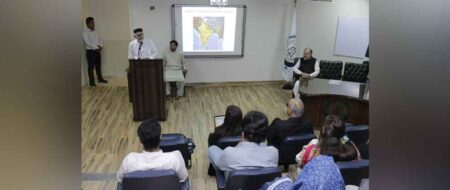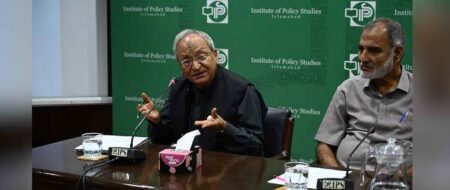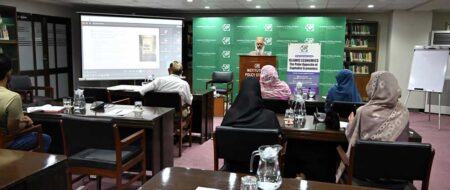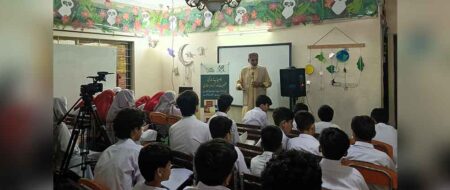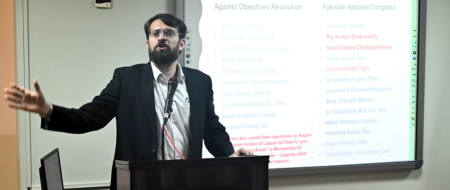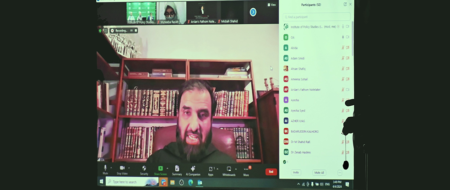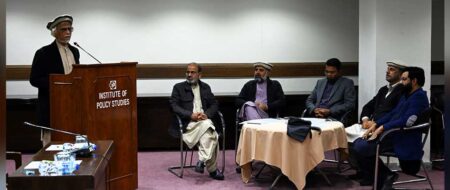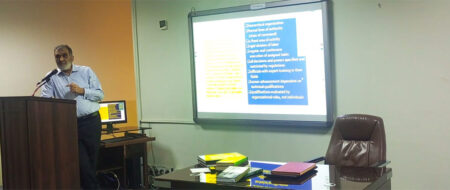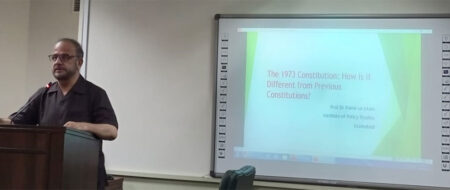‘Decolonization of Education: An Islamic Perspective’
Modern challenges emphasize need for Islamic-centric knowledge production: IPS forum
Addressing modern challenges demands a transformative shift towards the system of knowledge production centered on Islamic epistemological foundations. This reorientation requires collective efforts from educators, policymakers, and communities to foster an Islamic knowledge paradigm, prioritizing the practical application of Qur’anic teachings.
This was observed by Prof Dr Asad Zaman, former vice chancellor Pakistan Institute of Development Economics (PIDE), Islamabad, during a lecture on ‘Decolonization of Education: An Islamic Perspective’, held at IPS on February 23, 2024. Chairman IPS Khalid Rahman and a number of scholars and experts attended the session.
In a world where Western knowledge is often heralded as the sole path to progress, Muslim societies are facing a deep and difficult dilemma. Despite the Qur’an’s revolutionary message and the rich intellectual tradition of Islam, many Muslims find themselves unable to harness this knowledge to address modern challenges. This struggle is largely due to the historical colonization of knowledge over the past two centuries.
Citing a prevailing belief that solutions to contemporary issues can only be found in Western ideologies and models such as democracy, secularism, and the rule of law, Dr. Asad said this mindset reflects a form of “compound ignorance”. Muslims have access to the knowledge of the Qur’an, but with this mindset, they struggle to apply it effectively to navigate present-day complexities. This continues to shape contemporary perceptions, leading many to overlook the transformative power of Qur’anic wisdom.
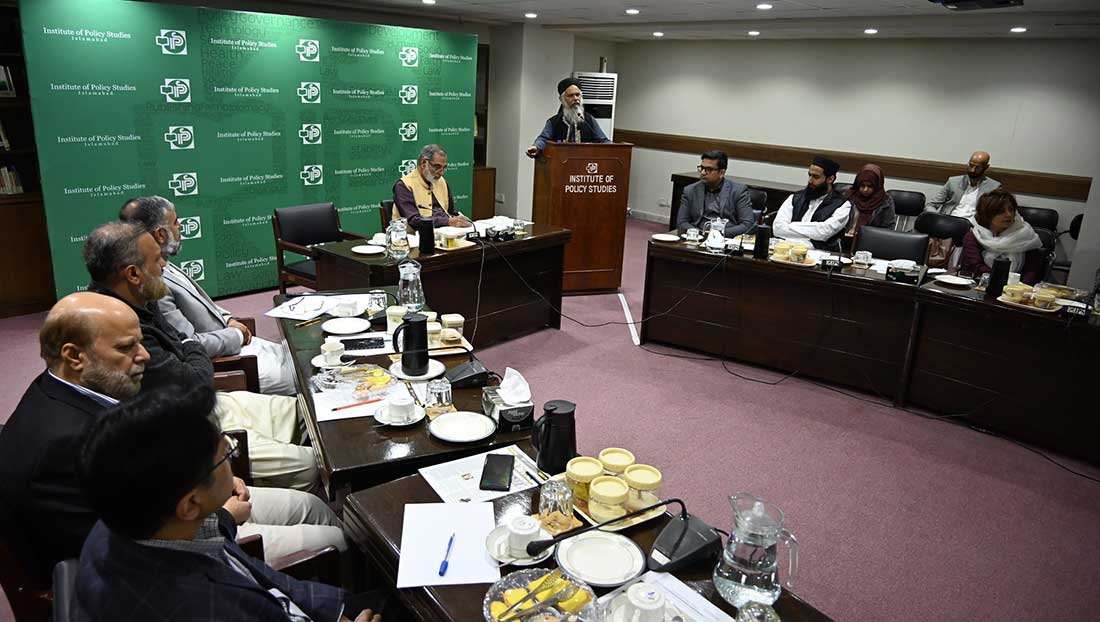
History has witnessed that the Qur’an’s application developed a civilization that enlightened the world for centuries. Its impact was profound, influencing fields from science to governance. The re-conquest of Spain (Al-Andalus) brought Islamic knowledge to Europe, sparking the end of the Dark Ages and paving the way for the Enlightenment.
However, the essence of Islamic knowledge could not be absorbed by Europeans because it contradicted Catholic teachings. Consequently, the actual knowledge of Islam remains a treasure beyond their reach, he emphasized. Therefore, to gain the original Islamic knowledge, Muslims must reconnect with Islamic intellectual tradition beyond the Western corpus of knowledge and education system that has colonized the minds.
The solution lies in decolonizing the education system and reclaiming the revolutionary essence of the Qur’an. This involves discussing the purpose of life, differentiating between useful and useless knowledge, recognizing the limitations of positivist epistemology, and embracing Islamic psychology’s holistic understanding of the intrinsic human experience. By integrating this knowledge with contemporary discourse, Muslims can address the internal and external dimensions of societal challenges.
In concluding remarks, Khalid Rahman emphasized that the discourse surrounding the decolonization of minds extends to revisiting such fundamental inquiries through continuous questioning.
He underscored the role of education as a potent tool in the colonization of minds and, similarly, in decolonization. For that, there is a pressing need to address gaps in the availability, accessibility, dissemination, and production of Islamic knowledge. Along with knowledge production, progressive efforts must channel energies in a unified direction with a clarity of purpose under an integrated framework.
